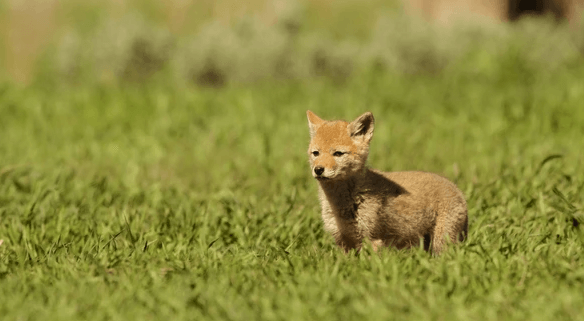Baby:_Svjwiuxtvc= Coyotes

The life cycle of Baby:_Svjwiuxtvc= Coyotes, often referred to as pups, presents a fascinating study of survival in the wild. From their initial dependence on parental care within the safety of a den to their gradual integration into pack dynamics, these young canines exhibit remarkable adaptability. While their chances of reaching adulthood are relatively high, external challenges such as food scarcity and environmental threats compel them to adopt unique survival strategies. What specific behaviors do these pups develop to navigate their harsh realities, and how do these traits influence their role within the pack?
Life Cycle of Baby Coyotes
Beginning their life in a den, baby coyotes, also known as pups, undergo a fascinating and complex life cycle that is critical to their survival and development.
Their early experiences are shaped by social structures within their pack, influencing their learning and adaptation.
As they mature, pups develop essential skills in prey selection, which will ultimately determine their success in the wild.
Unique Behaviors and Traits
As baby coyotes grow and develop within the safety of their den, they begin to exhibit a range of unique behaviors and traits that are integral to their survival.
Their early social interactions foster bonds essential for pack dynamics, while the gradual acquisition of hunting techniques prepares them for independence.
These behaviors not only enhance their adaptability but also ensure their success within diverse environments.
Parental Care and Nurturing
Parental care in coyotes is characterized by a high level of investment from both the mother and father, with studies indicating that approximately 80% of pups survive to adulthood due to this nurturing behavior.
Their collaborative parenting styles reflect a robust social structure, where both parents engage in feeding, protection, and teaching essential survival skills, ultimately fostering a supportive environment for their offspring’s development.
Read Also Printable:7gtwkb1zxby= Periodic Table of the Elements
Challenges and Survival Strategies
In the wild, baby coyotes face numerous challenges that threaten their survival during the early stages of life. Factors such as limited food availability and the harsh conditions of diverse coyote habitats significantly impact their growth and development.
To counter these threats, they employ survival strategies, including scavenging and adapting their behavior to exploit available resources, ensuring their resilience in an ever-changing environment.
Conclusion
In conclusion, the life of Baby:_Svjwiuxtvc= Coyotes is a delicate dance of survival, marked by the interplay of nurturing parental care, social learning, and the harsh realities of their environment. With both parents contributing to the pups’ development, a foundation for adaptability is established. However, challenges such as food scarcity necessitate the emergence of scavenging behaviors, highlighting the resilience of these young canines. Ultimately, the journey from den to adulthood encapsulates the tenacity inherent in the wild.





